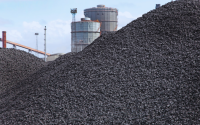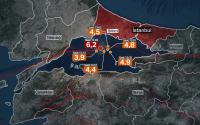10 March 2007Stephen Castle
The end is in sight for the traditional lightbulb after EU leaders yesterday called for a mass switch-off and a push to equip homes and offices with energy efficient alternatives within two years.
The initiative, part of an ambitious plan to cut carbon emissions, follows the move by Australia to switch to energy-saving lightbulbs and a similar initiative in California.
Jumping firmly on the low-energy lighting bandwagon, EU leaders asked the European Commission plans to rush through proposals to phase out incandescent bulbs - which contain a filament - in private homes across the EU by 2009.
The blueprint was unveiled by Angela Merkel, the Chancellor of Germany, which holds the presidency of the EU. She revealed that she has switched to low-energy bulbs at home.
"I've got energy-saving lightbulbs in my flat in Berlin," she said. "I believe that each individual can make a genuine contribution through responsible use of lightbulbs and lamps."
Poland's president, Lech Kaczynski, was caught off-guard when asked about his record on the issue. He said: "I assume the light bulbs in the presidential palace are energy-saving but I don't know - I'm not in charge of that, really."
The summit conclusions asked the European Commission "to rapidly submit proposals to enable increased energy efficiency requirements on office and street lighting to be adopted by 2008, and on incandescent lamps and other forms of lighting in private households by 2009."
The move won the backing of Green MEP, Caroline Lucas, who said: "Banning old-fashioned lightbulbs across the EU would cut carbon emissions by about 20 million tonnes a year - and save €5bn-€8bn (£3.4bn-£5.4bn) a year in domestic fuel bills."
However the German Chancellor may have undermined her cause by admitting that the low-energy bulbs have sometimes left her Berlin flat in a state of gloom. Ms Merkel said they are "not quite bright enough so sometimes when I'm looking for something that's dropped on the carpet I have a bit of a problem."
http://news.independent.co.uk/environment/lifestyle/article2344772.ece






